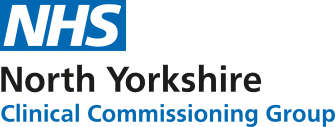Expanded NHS support available for patients in GP practices across the North East and Yorkshire
The support on offer for patients at their GP practice is expanding across the North East and Yorkshire region, thanks to thousands more healthcare staff working in local communities and to the new GP access recovery plan.
More than 4,450* additional staff have been recruited into direct patient care roles within the region’s primary care settings since 2020—meaning an expanded team of health professionals are now available to help patients get the right care when they need it, in addition to seeing their GP or practice nurse.
From today, the NHS is raising awareness of the support available through community health teams, including pharmacists, mental health practitioners, paramedics, physiotherapists, and social prescribers in every part of the country.
Record numbers of people are seeking support from their family doctors but with one in five GP appointments being for non-medical reasons such as loneliness or seeking advice on housing or debts, the NHS wants to make sure patients receive the most appropriate care.
A patient can always see their GP, but the NHS is also training more than 7,500 staff to better assess patients’ needs when they first contact their practice, so patients can be directed to the right health professional for their needs. For example, if a patient has muscular pain, they may be booked straight in to see a physiotherapist.
Dr Nigel Wells, a GP and Executive Director of Clinical and Professional at NHS Humber and North Yorkshire Integrated Care Board (ICB), said: “More and more people are seeking support from their GP practice, and the NHS must continue to adapt to match the changing needs of the communities we serve. By growing our workforce of healthcare professionals with specialised roles, we can expand access to care and tailor services to meet the needs of our diverse populations.
“Our goal is to guide people to the precise healthcare professional – whether it’s a GP, physiotherapist or another expert – to ensure their path to health is as efficient and effective as possible.”
A new survey has found that over a third (36%) of people in England are not confident that they can identify the various health professionals working in a general practice, which could include clinical pharmacists, nurses and even paramedics. Public awareness of the range of support could be increased. Although 64% of people in the North East and Yorkshire region said they were confident at identifying the roles available, they didn’t know that mental health practitioners, physiotherapists or social prescribers could be found at a general practice.
And more than 67% of people in the North East and 69% of people in Yorkshire and Humber surveyed said they were happy to receive care from another healthcare worker, recognising they didn’t always need to see a GP.
To help explain the support available in the community, a new film has been released by NHS England, which sees three curious children go behind the scenes at a general practice to meet some of these professionals and learn more about how they help patients get the care they need.
